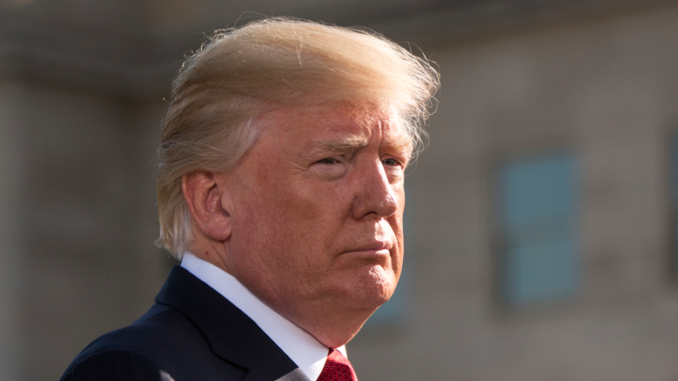
In a call with reporters, U.S. Secretary of Commerce, Wilbur Ross, announced that the United States would impose tariffs of 25% on steel and 10% on aluminum against Canada, the European Union, and Mexico. Contrary to the economic literature, Ross framed the protectionist move as one that would promote U.S. economic strength. He argued, “We take the view that without a strong economy, you can’t have strong national security.”
“This is protectionism, pure and simple, “European Commission (EC) President Jean-Claude Juncker declared. “The U.S. now leaves us with no choice but to proceed with a WTO dispute settlement case and with the imposition of additional duties on a number of imports from the U.S.”
EC Trade Commissioner Cecilia Malmström complained, “Throughout these talks the U.S. has sought to use the threat of trade restrictions as leverage to obtain concessions from the EU. This is not the way we do business, and certainly not between longstanding partners, friends, and allies.”
A handful of Republican elected officials took issue with the Administration’s decision. Senator Ben Sasse (R-NE) issued a statement noting:
This is dumb… you don’t treat allies the same way you treat opponents. We’ve been down this road before—blanket protectionism is a big part of why America had a Great Depression. “Make America Great Again” shouldn’t mean “Make America 1929 Again.”
Senator Jeff Flake (R-AZ) tweeted, “This is no way to treat our allies, Mr. President.” Senator Marco Rubio (R-FL) warned that the tariffs would make it “easier for China to line them [Europe and Asia] against us.”
The muted response from Republican elected officials, including silence from 2016 Presidential candidate Senator Ted Cruz (R-TX) reflects a Party that is remaking itself from the Party of Ronald Reagan to the Party of Donald Trump.
Near the bottom of a significant recession, President Reagan devoted an entire national radio address to international free trade on November 20, 1982. Reagan told his audience:
We’re reminding the world that, yes, we all have serious problems. But our economic system—based on individual freedom, private initiative, and free trade—has produced more human progress than any other in history. It is in all of our interests to preserve it, protect it, and strengthen it.
We are reminding our trading partners that preserving individual freedom and restoring prosperity also requires free and fair trade in the marketplace. The United States took the lead after World War II in creating an international trading and financial system that limited governments’ ability to disrupt free trade across borders. We did this because history had taught us an important lesson: Free trade serves the cause of economic progress, and it serves the cause of world peace.
The Republican Party’s growing embrace of protectionism is not new. The Party appears to be returning to a worldview that was once advanced by, among others, Senators Willis C. Hawley (R-OR) and Reed Smoot (R-UT). At that time, the Republican Party believed that higher tariffs promote economic prosperity. In advancing legislation that would become known as the Smoot-Hawley Tariff in 1930, Senator Hawley argued:
It is the purpose of our protective tariff policy to make our country self-sufficient and self-sustaining; to afford our agriculture industry and labor a proper opportunity in the American market. Under this system [U.S. tariff system] we have multiplied our national wealth, developed our resources, maintained a high standard of living and afforded our wage earners an unprecedented remuneration for their toil. It has made this a land of opportunity for brains, industry and ability of every kind…
The pending bill… chiefly relates to agriculture and to industries for which the present law does not adequately provide. It is frankly a protective tariff bill framed to meet the legitimate needs of our day. It is intended to be a structure under whose protection all America will prosper.
All America did not prosper.
Between 1930 and 1933, U.S. imports fell 24.7%. U.S. exports plunged 34.6%. The annual U.S. trade deficit increased 2.4%. Overall, trade fell nearly 50% faster than GDP contracted.
Today, trade comprises a share of the American economy that is approximately 3.5 times that in 1930. Then, trade accounted for 8.2% of U.S. GDP. In 2017, trade accounted for 29.3% of GDP. During the First Quarter of this year, that share had increased further to 29.7% of GDP. That means a much larger part of the economy and vastly larger number of jobs and incomes depend on trade than had been the case in 1930.
In waging a losing battle against the Smoot-Hawley legislation, Senator John N. Garner (D-TX) declared, “No greater fraud was ever perpetrated upon the American people than the claim of proponents of the Hawley-Smoot bill that it is designed ‘to protect American labor.’ …Its real purpose is to exploit, not to protect.” That line of argument holds true today when it comes to Trump Administration claims that its latest foray into protectionism will benefit both the American economy and national security.
